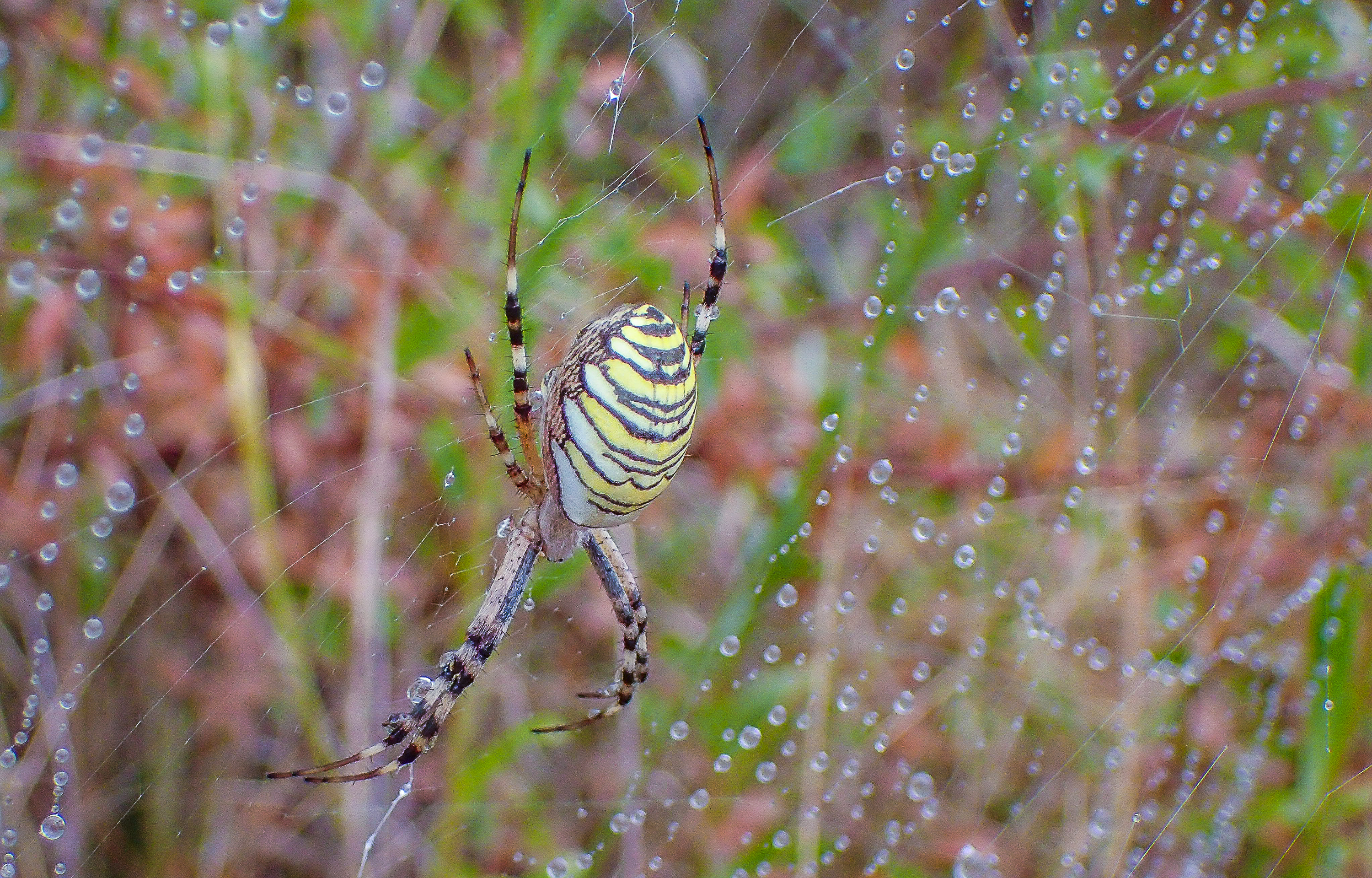Grasslands and abandoned backyards around Europe are hunting grounds for the wasp spider (Argiope bruennichi). One hundred years ago, this species could only be found in Europe in areas with a Mediterranean climate. In the last century, and more rapidly during the last decade, it has spread from those warm regions into much colder territories – as far north as coastal Estonia, Finland and Sweden – catching the attention of scientists who are searching for the key to its recent success. One such scientist, Monica M. Sheffer, a doctoral researcher in the RESPONSE Research Training Group at the University of Greifswald, studies many aspects of the spider’s biology for this reason. She led a study on the spider’s microbiome (the assemblage of bacteria within a host) that can have diverse impacts on hosts – including changing their dispersal behaviour.
The spiders for this study were collected from two populations: one in Greifswald and one in Estonia. Because the microbiome often varies depending upon the tissue type investigated, the researchers dissected the spiders and sequenced the microbiome of every tissue type. They also sequenced the microbiome of juvenile spiders (“spiderlings”) to see if any bacteria were passed from mother to offspring.
The sequencing analysis yielded an unexpected and exciting result: one single type of bacteria dominated every tissue type of the adults, and had been passed on to the spiderlings. Dubbed “DUSA” (Dominant Unknown Symbiont of Argiope bruennichi), this bacterium is unlike any other previously known bacterial species. The study revealed that it belongs to the phylum of Tenericutes, but it is highly divergent.
The authors suggest that the presence of DUSA in all investigated tissues of spiders from both Germany and Estonia could represent an intimate symbiosis between the spider and a bacterium. Such symbioses are common for Tenericute bacteria, and are known to change the behaviour of the host in other spiders and insects. Future studies will investigate whether more remote spider populations also carry this bacterium and if the symbiont could help the spider on its northward journey through Europe.
The concept for this study was developed thanks to the University of Greifswald’s Mentoring Programme, as the programme connected Prof. Dr. Gabriele Uhl, a researcher whose work also approaches the range expansion of Argiope bruennichi, with Dr. Mia M. Bengtsson, a microbiologist studying the interactions of microbes and their hosts. Together, they were inspired to share their expertise and look into the microbiome of the wasp spider, and supervised Monica M. Sheffer in her investigations. Prof. Dr. Tim Urich, also from the University of Greifswald and collaborators Dr. Stefan Prost (Senckenberg, Frankfurt) and Prof. Dr. Tillmann Lueders (University of Bayreuth) brought in additional expertise and infrastructure for the research project.
Further information:
Publication: Sheffer, M.M.; Uhl, G.; Prost, S.; Lueders, T.; Urich, T.; Bengtsson, M.M. 2020. Tissue- and population-level microbiome analysis of the wasp spider Argiope bruennichi identified a novel dominant bacterial symbiont. Microorganisms 8: 8. DOI: doi.org/10.3390/microorganisms8010008
https://www.mdpi.com/2076-2607/8/1/8/htm
Zoological Institute and Museum
General and Systematic Zoology
Microbial Physiology and Molecular Biology
Contact at the University:
Monica M. Sheffer & Gabriele Uhl
Zoological Institute and Museum
General and Systematic Zoology
Loitzer Straße 26, 17489 Greifswald
Tel.: +49 3834 420 4281
monica.shefferuni-greifswaldde
Twitter
Dr. Mia M. Bengtsson
Microbial Physiology and Molecular Biology
Felix-Hausdorff-Straße 8, 17489 Greifswald
Tel.: +49 3834 420 5918
mia.bengtssonuni-greifswaldde
Contact for co-authors:
Dr. Stefan Prost: stefanprost.researchprotonmailcom
Prof. Dr. Tillmann Lueders: tillmann.luedersuni-bayreuthde
Prof. Dr. Tim Urich: tim.urichuni-greifswaldde

